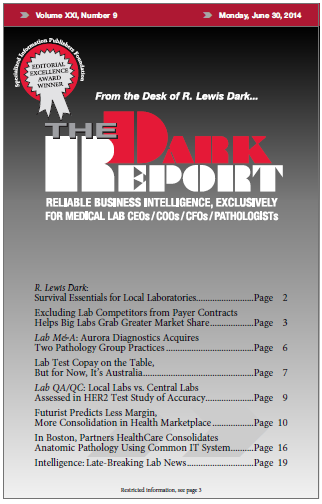CEO SUMMARY: Changes in healthcare are motivating health insurers and the nation’s largest lab testing companies to enter into contracts in which the large lab company lowers its lab test prices to the payer in return for having the payer exclude that lab company’s toughest competitors from the payer’s provider network. A number of lab […]
To access this post, you must purchase The Dark Report.


